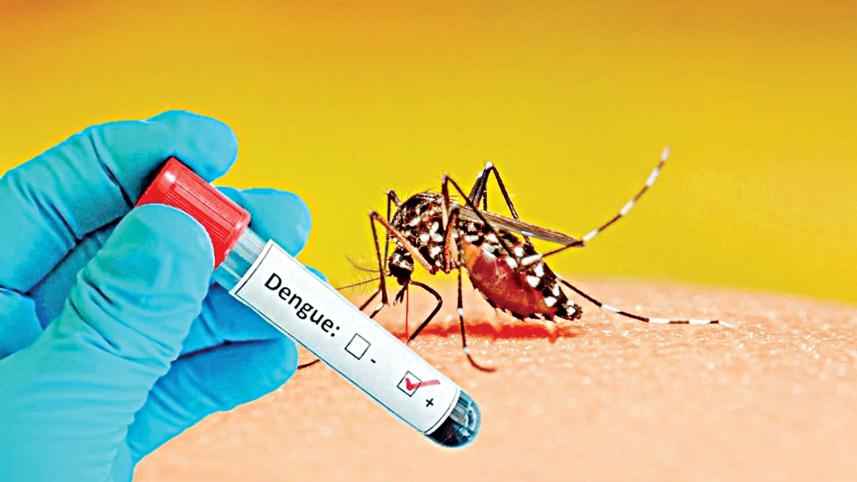Experts call for integrated mosquito management plan and PPP to prevent ongoing dengue crisis in Bangladesh

The International Society of Bangladesh-affiliated Micro-biologists (ISBM) organised a webinar on the dengue crisis that is claiming many lives daily in Bangladesh, says a press release. Based in Maryland, USA, ISBM carried out this online event on Zoom on August 26, 2023, entitled "Current state of the dengue epidemic in Bangladesh: potential short-term and long-term remedies for control and prevention." An international panel of experts from home and abroad delivered their presentations over a two-hour-long webinar.
Some of the essential ideas and opinions that were exchanged during the session included the current state of dengue and how it has escalated to a serious, life-threatening level in Bangladesh. Dr Shirin updated the audience on the status of dengue in Bangladesh and IEDCR's initiatives to control the spread of the vector, the Aedes mosquito.
Typical reservoirs and breeding grounds for these mosquitoes were the areas surrounding household WASA water metres and construction sites, besides plant pots and roof-top gardens. Biological control of mosquitoes has been successful in controlling dengue in Singapore. Therefore, a combination of currently available biological treatment on the ground and aerial spraying of safe pesticides may be effective for the immediate control of dengue in Bangladesh.
Dr Shakila presented her work on Bacillus thuringiensis, which produces a protein that effectively kills Aedes mosquito larvae. Domestic remedies mentioned at the meeting included growing peppermint, 'gandha' flowers, and basil leaves, which may have a repellent effect on mosquitoes. Among the topics of public health awareness, personal protection from mosquito bites was mentioned.
Due to the unavailability of vaccines and no specific treatment to counter dengue infection in Bangladesh, it was stressed and agreed upon that the country is indeed in dire need of improving and synchronising its public health policies for effective mosquito management.
Vaccine development, which involves a time-consuming and meticulous screening process, was additionally another brief focus of discussion and is a distant possibility for Bangladesh to combat dengue. Issues related to serotype variability and vaccine administration amongst vulnerable age groups were pointed out.
While summarising the webinar, Dr G U Ahsan also emphasised public health awareness, coordination between administrators and scientists, and community engagement for effective control of dengue. Based on prior research carried out in Bangladesh, source reduction of mosquitoes should be given a priority to combat dengue, and managing water would be key to reducing the disease.



 For all latest news, follow The Daily Star's Google News channel.
For all latest news, follow The Daily Star's Google News channel.
Comments